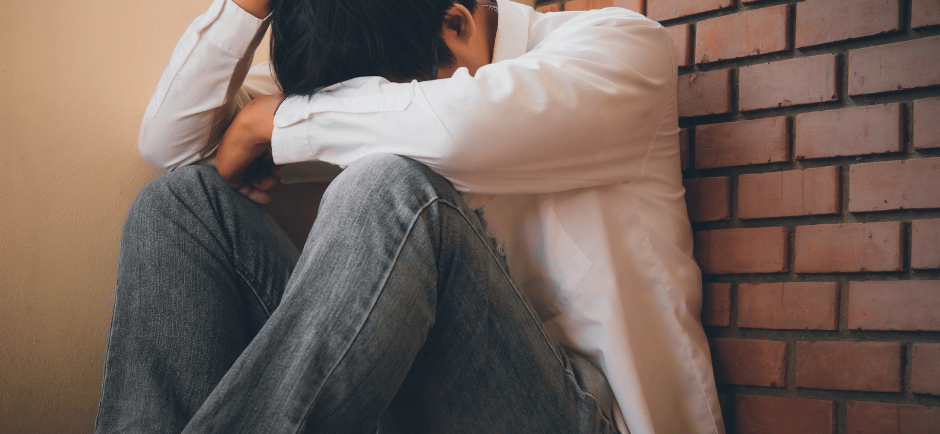The Link Between Porn and Depression: Investigating the Bidirectional Relationship
Explore the connection between porn and depression, including the bidirectional relationship, depressive symptoms, and interventions for dual treatment. Investigate this important topic now.


The Link Between Pornography Addiction and Depression
There has been growing concern about the impact of pornography addiction on mental health, particularly its relationship with depression. Research suggests that there is a bidirectional relationship between pornography addiction and depressive symptoms, with each condition potentially exacerbating the other. This blog post aims to investigate this link and explore interventions for dual treatment.
The Bidirectional Relationship
Studies have shown that individuals with pornography addiction are more likely to experience depressive symptoms. This could be attributed to several factors. Firstly, excessive consumption of pornography can lead to feelings of guilt, shame, and low self-esteem, which are common symptoms of depression. Moreover, the unrealistic and often objectifying portrayals of sexuality in pornography can distort one's perception of intimacy and relationships, further contributing to feelings of loneliness and dissatisfaction.
On the other hand, individuals with pre-existing depressive symptoms may turn to pornography as a coping mechanism. Pornography provides a temporary escape from negative emotions and offers a sense of pleasure and gratification. However, this reliance on pornography as a coping mechanism can eventually lead to addiction, exacerbating the individual's depressive symptoms in the long run.
Interventions for Dual Treatment
Given the bidirectional relationship between pornography addiction and depression, it is crucial to address both conditions simultaneously in treatment. Here are some interventions that have shown promise in dual treatment:
1. Cognitive Behavioral Therapy (CBT)
CBT is a widely used therapeutic approach for various mental health conditions, including addiction and depression. In the context of pornography addiction and depression, CBT aims to identify and challenge negative thought patterns and beliefs related to both conditions. By addressing cognitive distortions and developing healthier coping mechanisms, individuals can break the cycle of addiction and improve their depressive symptoms.
2. Mindfulness-Based Interventions
Mindfulness-based interventions, such as mindfulness meditation and mindfulness-based cognitive therapy, have been found to be effective in reducing symptoms of both addiction and depression. These interventions focus on cultivating present-moment awareness and non-judgmental acceptance of one's thoughts and emotions. By practicing mindfulness, individuals can develop a greater sense of self-awareness and emotional regulation, which can help in managing both pornography addiction and depressive symptoms.
3. Support Groups
Participating in support groups specifically tailored for individuals struggling with pornography addiction and depression can provide a sense of community and understanding. These groups offer a safe space for individuals to share their experiences, receive support, and learn from others who have faced similar challenges. Support groups can complement formal therapy and provide ongoing support throughout the recovery process.
4. Healthy Lifestyle Changes
Engaging in healthy lifestyle changes can have a positive impact on both pornography addiction and depression. Regular exercise, a balanced diet, and sufficient sleep can improve overall well-being and contribute to better mental health. Additionally, finding alternative activities and hobbies that provide a sense of fulfillment and purpose can help individuals reduce their reliance on pornography as a source of pleasure or escape.
5. Professional Guidance and Treatment
Seeking professional guidance and treatment is crucial for individuals dealing with both pornography addiction and depression. Mental health professionals, such as therapists and counselors, can provide personalized support and guidance tailored to the individual's specific needs. They can help individuals develop strategies to overcome addiction, manage depressive symptoms, and work towards long-term recovery.
Conclusion
The link between pornography addiction and depression is complex and bidirectional. It is important to recognize the impact that excessive pornography consumption can have on mental health and the potential for it to exacerbate depressive symptoms. By addressing both conditions simultaneously through interventions such as cognitive behavioral therapy, mindfulness-based interventions, support groups, healthy lifestyle changes, and professional guidance, individuals can work towards breaking free from addiction and improving their mental well-being.
It is essential for individuals struggling with pornography addiction and depression to seek help and support from qualified professionals. With the right interventions and support, recovery and improved mental health are possible.


